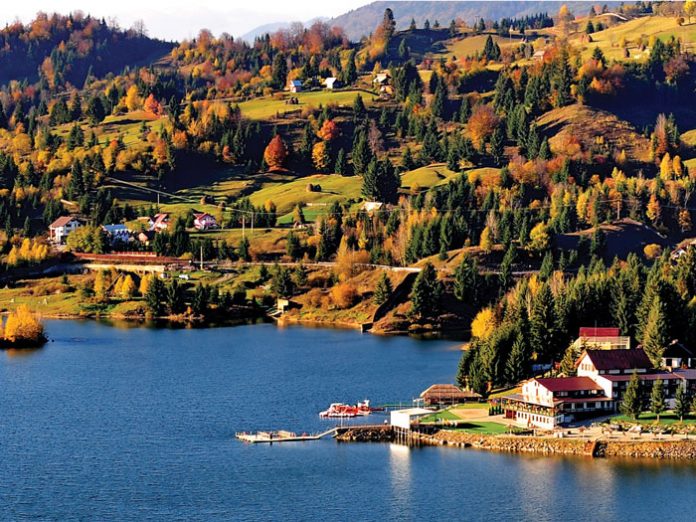“Ai avut o petrecere ieri? You had a party yesterday?”
“Yes.”
“It was a holiday party, correct?”
His finger was pointing just inches from my face, and the force of his breath was pushing me against the wall. Then the three of them, including the head of the Young Communists from the other school and our local Communist Party leader, formed a human wall around me, preventing me from moving.
It didn’t matter, as there was nowhere I could escape. The heavy wooden door had been firmly shut behind me. We were in the teachers’ lounge, a gorgeous baroque room with high ceilings, thick carpeting, heavy oak furniture and plush leather armchairs. It was very impressive. As it was then recess, the principal and all of the teachers were enjoying their break. I remember seeing my biology teacher in one of the chairs; my Russian teacher was also there. Though they could never state it publicly, I knew they privately had no love for the Communists and didn’t associate with them. They turned their heads in the other direction as I received my tongue-lashing.
The head of the Young Communists might have been short and skinny, but he was mean-faced and intimidating, and I was only 15 years old.
“It was a holiday, but it wasn’t a holiday party,” I explained.
“You served this and this food. Aren’t those things that you eat on your holiday?”
I had always been timid and shy, and I began to cry.
“Why are you singling me out?” I wept.
After the War
Romania had come under German control during World War II, assisted by a group of extremely anti-Semitic Romanians called the Brownshirts. The Brownshirts didn’t hate only Jews; they also detested the Roma people, also known as Gypsies. When Romania was liberated it was the Russians who marched into town, and that’s how the country became communist. In other words, the political upheaval didn’t come from within; it came from without.
Once you know this, you’ll understand that most Romanians weren’t crazy about being under the Communists’ rule—except for those Romanians who now became the country’s new rulers. They were very strict. Have you heard the expression “holier than the Pope?” The Romanians in charge were more communist than the Russians themselves.





















